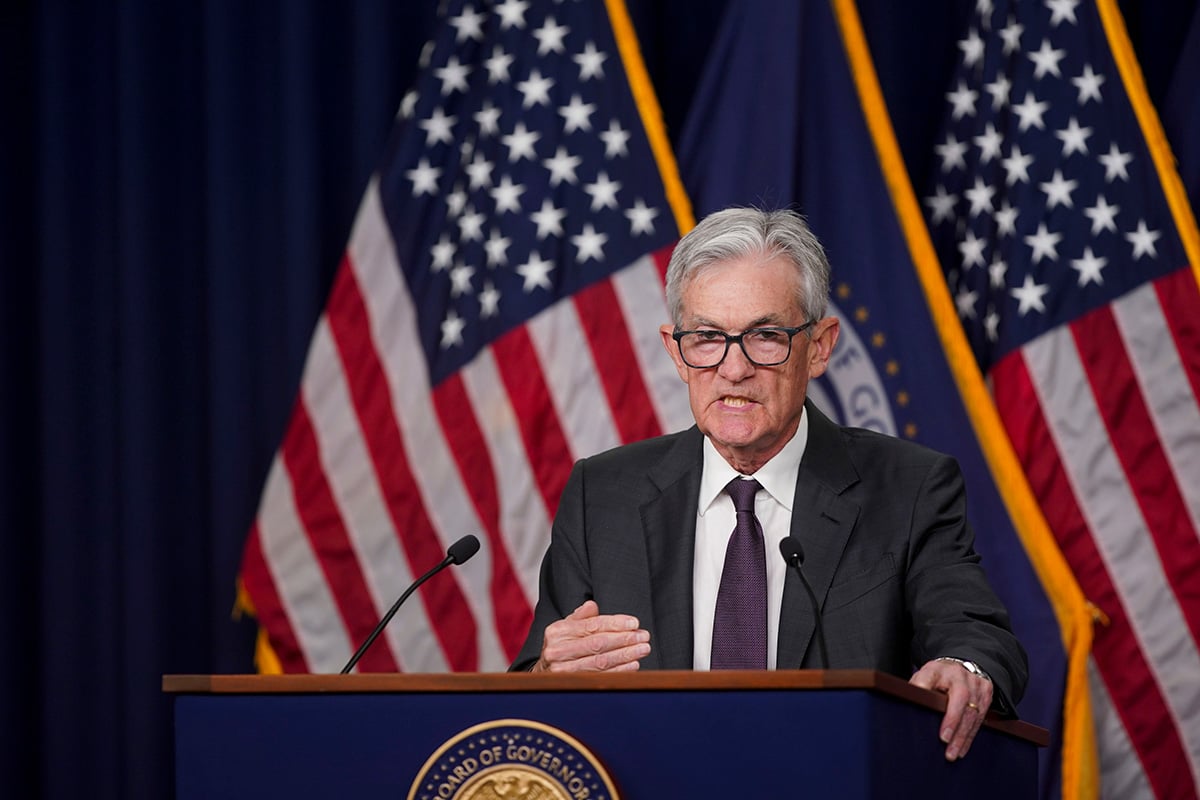Federal Reserve policy makers are a bunch of “incredibly nerdy” technocrats who never discuss politics in their meetings, according to a senior official, while his colleague said the election of Donald Trump as U.S. president shouldn't delay an interest-rate increase next month.
“I am not seeing enough volatility here to change my basic projection for the economy,” said Federal Reserve Bank of St. Louis President James Bullard on Thursday. “I think we are basically on track, the same way we were before the election,” he said in St. Louis. “Our view has called for a single rate increase and I think December would be a reasonable time to implement that increase.”
 Republican Trump's shock victory on Nov. 8 initially sent stock markets plunging, though equity prices have recovered and bond yields risen in anticipation of the tax cuts and infrastructure investment he promised voters. Investors currently see an 84 percent probability of a quarter percentage point hike at their Dec. 13-14 meeting, according to pricing in federal funds futures.
Republican Trump's shock victory on Nov. 8 initially sent stock markets plunging, though equity prices have recovered and bond yields risen in anticipation of the tax cuts and infrastructure investment he promised voters. Investors currently see an 84 percent probability of a quarter percentage point hike at their Dec. 13-14 meeting, according to pricing in federal funds futures.
Trump criticized the Fed during his campaign. Questions remain, however, over his attitude toward Fed independence and Chair Janet Yellen, whom he accused of holding rates low to aid Democratic President Barack Obama. Fed officials stressed the institution is apolitical.
“It can be, to an outsider, very hard to understand all the things we get into, because we're incredibly nerdy, incredibly geeky,” said San Francisco Fed chief John Williams as he described meetings of the rate-setting Federal Open Market Committee (FOMC) in Washington.
The key thing is “the 17 policy makers, the hundreds of economists who're involved in this, nowhere is there a discussion of politics,” he said Wednesday in San Francisco. “Even though we're right in the center of Washington, D.C., and all that entails, we just sit there in those rooms—in that one room, actually—and just discuss the economy and how we can best achieve the goals that Congress gave us.”
Trump has not commented on his views toward the Fed or Yellen since his victory. He cannot fire the chair, whose four-year term expires in February 2018, but has previously said he would not reappoint her to lead the central bank. Nor has there been any indication of what, if any, Fed reform he would favor, now that his party controls both chambers of Congress.
Bullard said he didn't expect the political upheaval in Washington to have any influence on the monetary policy debate and that scrutiny by lawmakers was welcome.
“It has been re-examined many, many times and Congress keeps coming out more or less to the same position, which is that this is a pretty good structure for this country because it decentralizes some of the decision-making across the country and creates an institution that is at arm's length from the political process,” he said.
Complete your profile to continue reading and get FREE access to Treasury & Risk, part of your ALM digital membership.
Your access to unlimited Treasury & Risk content isn’t changing.
Once you are an ALM digital member, you’ll receive:
- Thought leadership on regulatory changes, economic trends, corporate success stories, and tactical solutions for treasurers, CFOs, risk managers, controllers, and other finance professionals
- Informative weekly newsletter featuring news, analysis, real-world case studies, and other critical content
- Educational webcasts, white papers, and ebooks from industry thought leaders
- Critical coverage of the employee benefits and financial advisory markets on our other ALM sites, PropertyCasualty360 and ThinkAdvisor
Already have an account? Sign In Now
*May exclude premium content© 2025 ALM Global, LLC, All Rights Reserved. Request academic re-use from www.copyright.com. All other uses, submit a request to [email protected]. For more information visit Asset & Logo Licensing.





